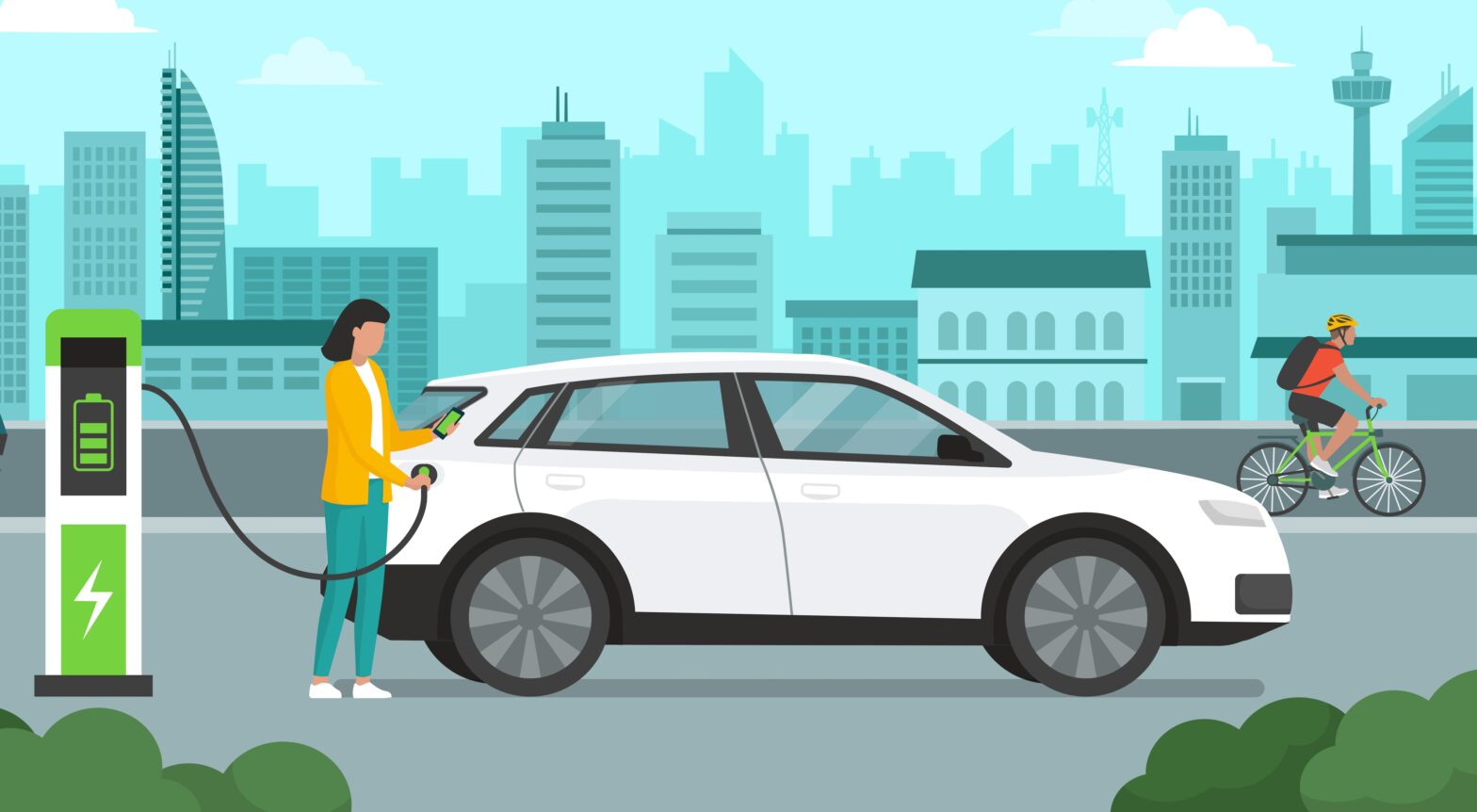New hires are asking for more from their employers than they did pre-pandemic. Offering a government-subsidised lease on an electric car through salary sacrifice is both a great perk and an excellent way to make your business more sustainable – at no cost to the business.
Electric cars are far from the novelty they once were.
You don’t just see the odd Tesla on the streets anymore, as legacy car-makers have put their manufacturing might behind oodles of options, from full SUVs to zippy little compacts.
>See also: How to buy an electric car through your business
With these expanding options, it’s no surprise that 40% of drivers were willing to make the switch – but many were still worried about the higher upfront cost, even as fuel costs for gas guzzlers soars.
It’s clear there is quite a lot of demand there, but with just 1.4 per cent of the UK fleet fully electric, it isn’t all being met.
>See also: 8 of the best electric cars for small business leasing
Leasing a car solves the upfront cost issue and lets drivers wary about battery range see just how far an electric car can drive – it’s probably more than they expect.
But leasing itself isn’t all that cheap, which is where you as an employer can come in, with a perk your new hire probably won’t see elsewhere – a saving of between 30 per cent and 60 per cent on the cost of a lease.
Salary sacrifice electric car scheme explained
Wait, so who’s paying? Are you, the small business owner, topping the lease up?
Nope – you don’t pay a penny.
It’s a bit complicated but it all works for a “salary sacrifice” scheme. These have been around in various forms for decades but became especially well-known through the Cycle to Work scheme. Essentially, your employee agrees to sacrifice a certain portion of their salary for the cost of the lease – but unlike all the other things they might buy with their salary, they get to do this before the income is taxed, leading to huge savings – between 30-60 per cent compared to regular leases.
There is a small Benefit in Kind tax that usually applies to these kinds of schemes, but the government has intentionally kept this exceptionally low for electric cars, as it is keen for as many people to make the switch as possible.
Will I have to do a lot of paperwork?
Most employers or HR managers can see a headache coming when attempting to deal with a well-meaning but complex government tax-incentive scheme. Saving a few pounds isn’t worth it when it takes you all day to wrangle.
And it’s true, the government’s original salary sacrifice electric car scheme was extremely complicated. In fact, that’s why Tom Eilon and I first set up The Electric Car Scheme in 2020 – we were trying to access the government subsidy themselves and found it impossible to access.
The Electric Car Scheme takes care of that paperwork for you. Your company gets a dedicated person helping you roll out the service, and to help each employee select exactly which car they want – from Tesla to a Hyundai.
Are the savings worth it?
Absolutely.
Compared to regular leases, The Electric Car Scheme will save your employees between 30-60 per cent.
This kind of saving can apply to electric cars from across the price spectrum.
For example, a spiffy Jaguar i-Pace would usually cost £938 a month. With the Electric Car Service, it would be just £595 – a whopping £16,472 in savings over a 48-month lease term. Or they could go for a Vauxhall Mokka-E, which usually would cost £386 a month to lease, but comes down to just £250 with The Electric Car Scheme.
The cars also arrive quicker than they usually do via traditional leasing. There’s a lot of demand out there. The Electric Car Scheme fielded over 65,000 requests for cars while in beta.
How much carbon is my business saving?
A lot. Getting around is the most emissions-intensive thing many people do. Transport emits more than any other industry group in the UK, accounting for about 24 per cent of 2020 emissions. (And that was lower than usual thanks the lockdowns.)
The exact amount of emissions your business knocks off from having employees commute in a clear car will depend on how far they are driving, and how clean the car they were driving before was.
But it’s likely to be quite a bit. The average lease The Electric Car Scheme signs is for 10,000 miles.
Drive in a standard petrol car that would be about 2.7 tonnes of CO2 – well over a fifth of the average annual emissions of a UK resident, and equivalent to about 102 trees. With an electric car, that falls to nothing.
And the numbers scale up fast. We usually are signing companies with around 100 employees and seeing about 10 of those employees jumping on the opportunity in the first year. That’s 27 tonnes of emissions your company is no longer responsible for already, or about 1,026 trees.
Does commuting really count as part of my company’s footprint? They aren’t at work
Yes. The Greenhouse Gas Protocol, the most widely used greenhouse gas accounting standard, includes commuting as part of a company’s footprint for its “Scope 3” standard, which also covers emissions from your wider supply chain.
If you want to be telling your customers and workers you’re making real efforts to operate sustainably, reporting on these kind of more holistic emissions will help a lot. Better yet, it will make a difference.
Thom Groot is co-founder and CEO at Electric Car Scheme





